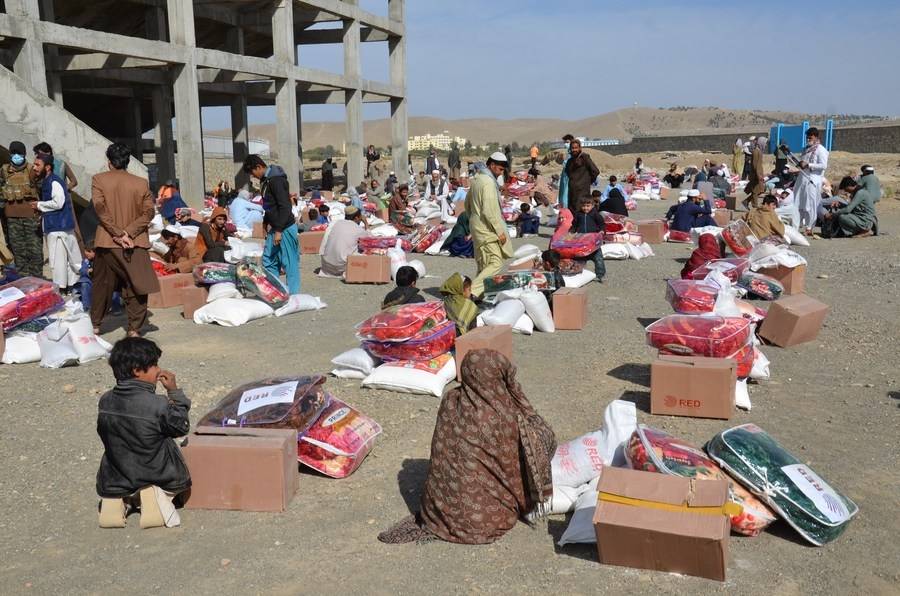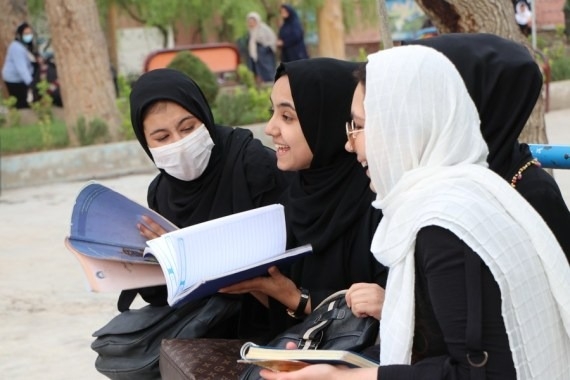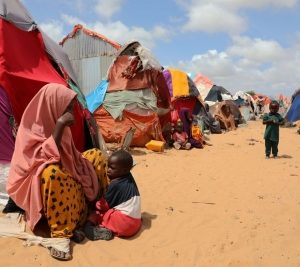This was after the US, Europe and other global partners concluded that humanitarian aid is not sufficient to solve the ongoing crisis in Afghanistan….reports Asian Lite News
Amid the ongoing food insecurity in Afghanistan, the World Food Programme (WFP) is set to provide more than 15 million Afghans with food assistance every month till March 2023.
“Our plan for winter is to provide food assistance to more than 15 million every month,” said Wahidullah Amani, local media reported citing WFP Afghanistan Spokesman.
Citing the sources, Khaama Press reported that WFP has decided to provide more than 15 million people in Afghanistan with food assistance straight after the US, Europe and other global partners concluded that humanitarian aid is not sufficient to solve the ongoing crisis in the war-torn nation.
Earlier, the World Food Programme stated that it would buy 80,000 tons of wheat from Ukraine to distribute to Afghanistan’s needy people.
However, several locals have complained of not receiving any aid, lack of transparency in international aid amid the high prices of basic amenities in the country and unemployment.
“There are economic problems such as high prices and also unemployment. I haven’t received any aid,” said Samsor, an Afghan local vending on the street, Khaama Press reported.
“We haven’t received the aid. We need aid but if the leaders pay attention to us,” said Bismillah, another Kabul resident.
Amid the Ukraine war, the World Food Programme has called for USD 1.1 billion to continue delivering monthly food and nutritional assistance for the next six months to 15 million acutely food-insecure people in Afghanistan.
World Food Programme (WFP) and the United Nations Office for the Coordination of Humanitarian Affairs (UNOCHA) in Afghanistan condemned the ongoing economic crisis in Afghanistan as people in the country are on the brink of starvation and facing poverty.
In a tweet, OCHA in Afghanistan wrote, “19 M people are facing food insecurity, 25M people are living in poverty, 5.8M people are in protracted internal displacement, thousands of houses damaged by floods and earthquakes,” expressing concerns about the plight of Afghans, TOLOnews reported.
“To survive the winter, they require food, nutrition support, warm clothing & a roof over their heads,” tweeted OCHA.
Meanwhile, the World Food Programme has also raised concerns about the economic crisis in Afghanistan.
“The economic crisis wiped out jobs, salaries & livelihoods across Afghanistan, helping families & communities support themselves is more important than ever,” wrote WFP on Twitter.
The rising crisis in Afghanistan has hit small enterprises the hardest and private companies have laid off more than half of their employees due to a shortage in sales and a drastic decline in the consumer demand for products. (ANI)













